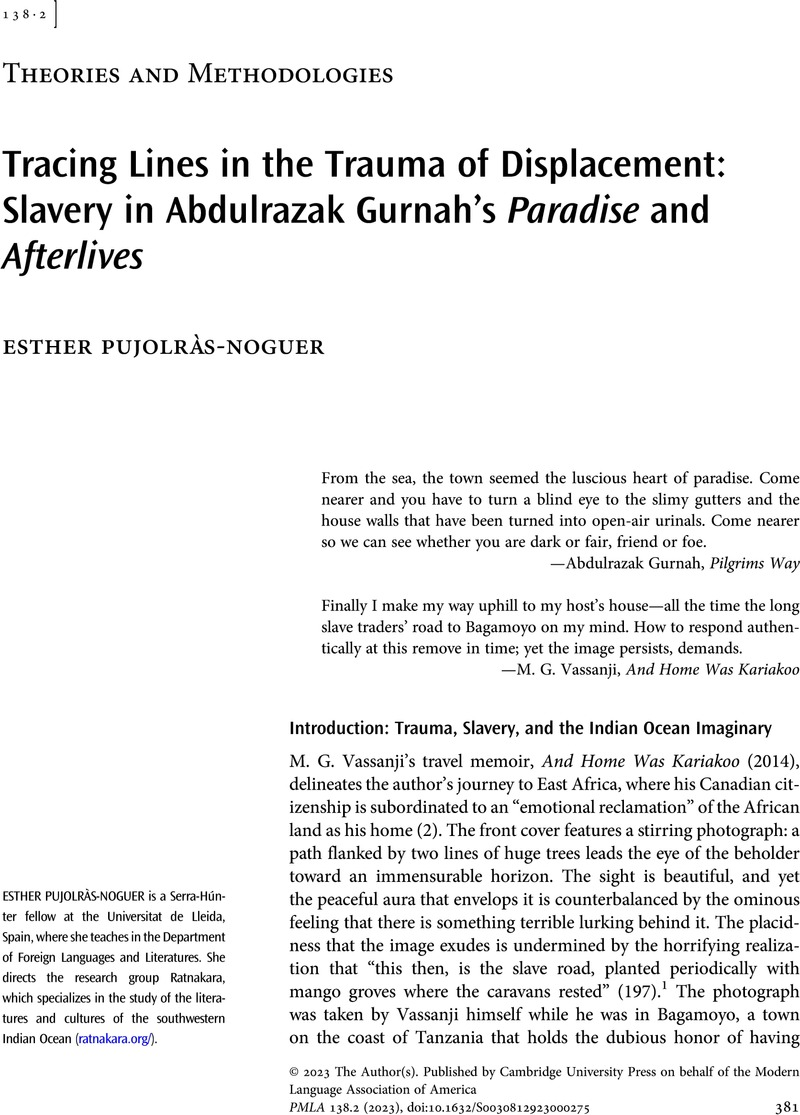Crossref Citations
This article has been cited by the following publications. This list is generated based on data provided by Crossref.
Maricocchi, Rita
2024.
Reframing colonial amnesia: German colonialism and multilingual memory in Abdulrazak Gurnah’s
Afterlives
.
Atlantic Studies,
p.
1.





